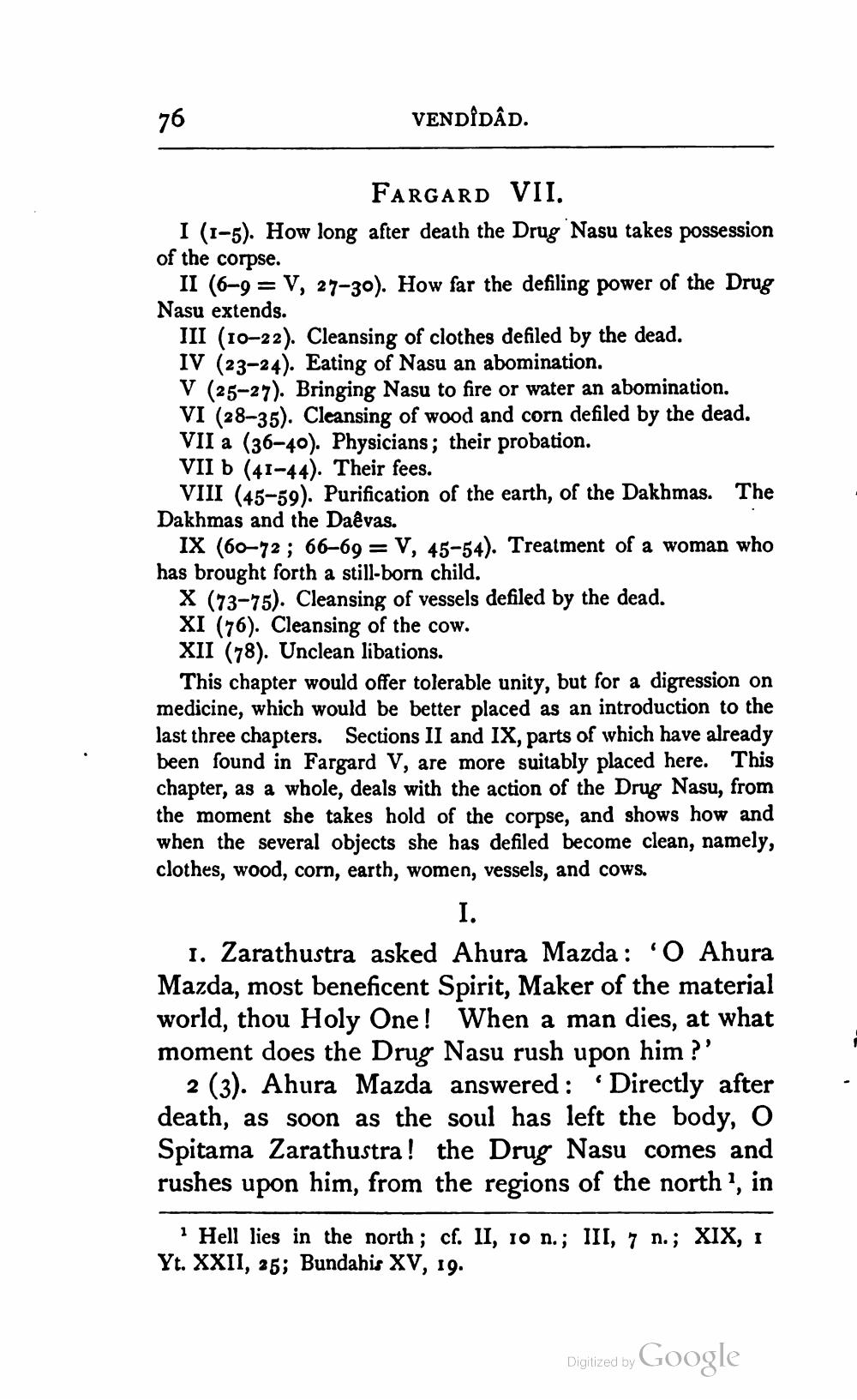________________
VENDIDÂD.
FARGARD VII. I (1-5). How long after death the Drug Nasu takes possession of the corpse.
II (6-9 = V, 27-30). How far the defiling power of the Drug Nasu extends.
III (10-22). Cleansing of clothes defiled by the dead. IV (23-24). Eating of Nasu an abomination. V (25-27). Bringing Nasu to fire or water an abomination. VI (28–35). Cleansing of wood and corn defiled by the dead. VII a (36-40). Physicians; their probation. VII b (41-44). Their fees.
VIII (45-59). Purification of the earth, of the Dakhmas. The Dakhmas and the Daêvas.
IX (60–72; 66-69 = V, 45-54). Treatment of a woman who has brought forth a still-born child.
X (73–75). Cleansing of vessels defiled by the dead. XI (76). Cleansing of the cow. XII (78). Unclean libations.
This chapter would offer tolerable unity, but for a digression on medicine, which would be better placed as an introduction to the last three chapters. Sections II and IX, parts of which have already been found in Fargard V, are more suitably placed here. This chapter, as a whole, deals with the action of the Drug Nasu, from the moment she takes hold of the corpse, and shows how and when the several objects she has defiled become clean, namely, clothes, wood, corn, earth, women, vessels, and cows.
1. Zarathustra asked Ahura Mazda: 'O Ahura Mazda, most beneficent Spirit, Maker of the material world, thou Holy One! When a man dies, at what moment does the Drug Nasu rush upon him?
2 (3). Ahura Mazda answered: Directly after death, as soon as the soul has left the body, O Spitama Zarathustra! the Drug Nasu comes and rushes upon him, from the regions of the north, in
* Hell lies in the north ; cf. II, 10 n.; III, 7 n.; XIX, Yt. XXII, 35; Bundahis XV, 19.
Digitized by Google




